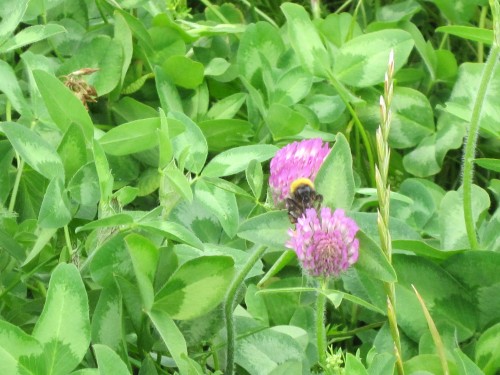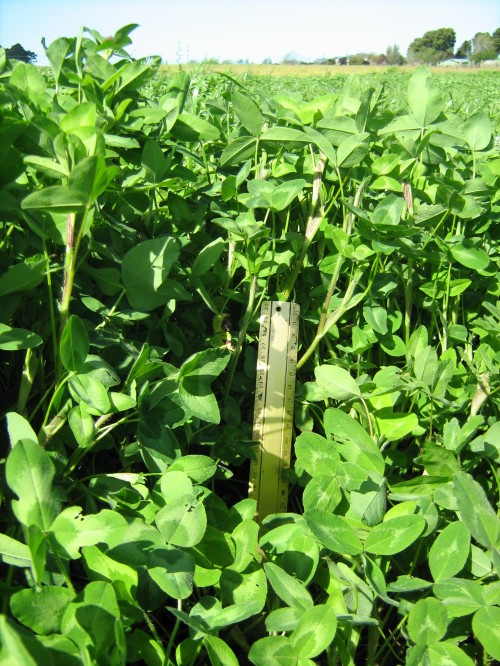Rubitas Red Clover
Murray Gane is a cropping and viticulture expert from Rapaura in Marlborough. Murray has a life time of experience in the production of Red Clover for Seed, as do a number of Marlborough farmers both past and present.

Photo: Bumble bee at work pollinating Rubitas Red Clover- 14 December 2012.
Murray suggests the use of red clover for grazing is much underrated, due in part that most red clovers sold on the NZ market are upright varieties best suited for hay and silage production.
Rubitas has impressed Murray as a prostate, deep rooted hard grazing red clover being very palatable to his now small sheep flock, where all the clover is consumed before the ryegrass is considered. In his experience red clover is a more reliable plant than white clover, when the heat and dry of a
Marlborough summer is upon us. Red Clover is the standout perennial legume, producing quality DM well into summer.
Whilst it may not seem important Red Clover is very attractive to bumble bees, this may prove in the long run critical to agriculture as most legumes are insect pollinated. The Humble bumble bee may prove to be the key to future pasture maintenance in this country. It`s often the small things that matter most.

Photo: Rubitas Red Clover seed production paddock-2nd year, 27 September 2013.
The facts
Rubitas is a perennial prostrate stoloniferous red clover with an extensive root system. New plants will form from these roots and replace the parent plant, because of this Rubitas is more persistant and productive under dry conditions than other red clovers. Red clovers show some resistance to clover root weevil now a major pest throughout NZ. Rubitas is well suited to south facing hill country with reasonable PH and P levels, where grazing is the main activity.
Seed will be available from autumn harvest 2014.
Keywords: perennial, low oestrogen, prostrate, summer productive, low rainfall extensive roots.
